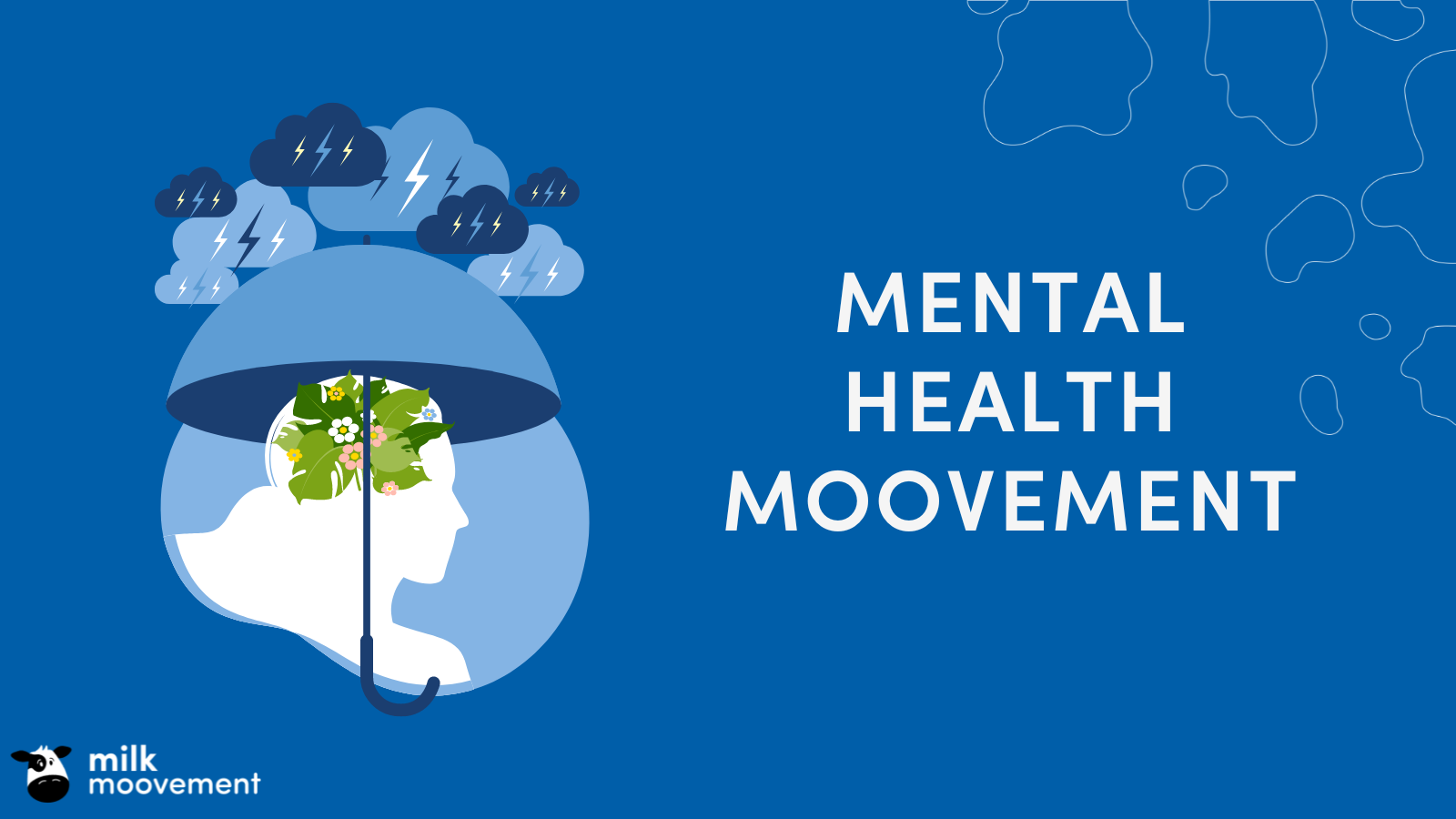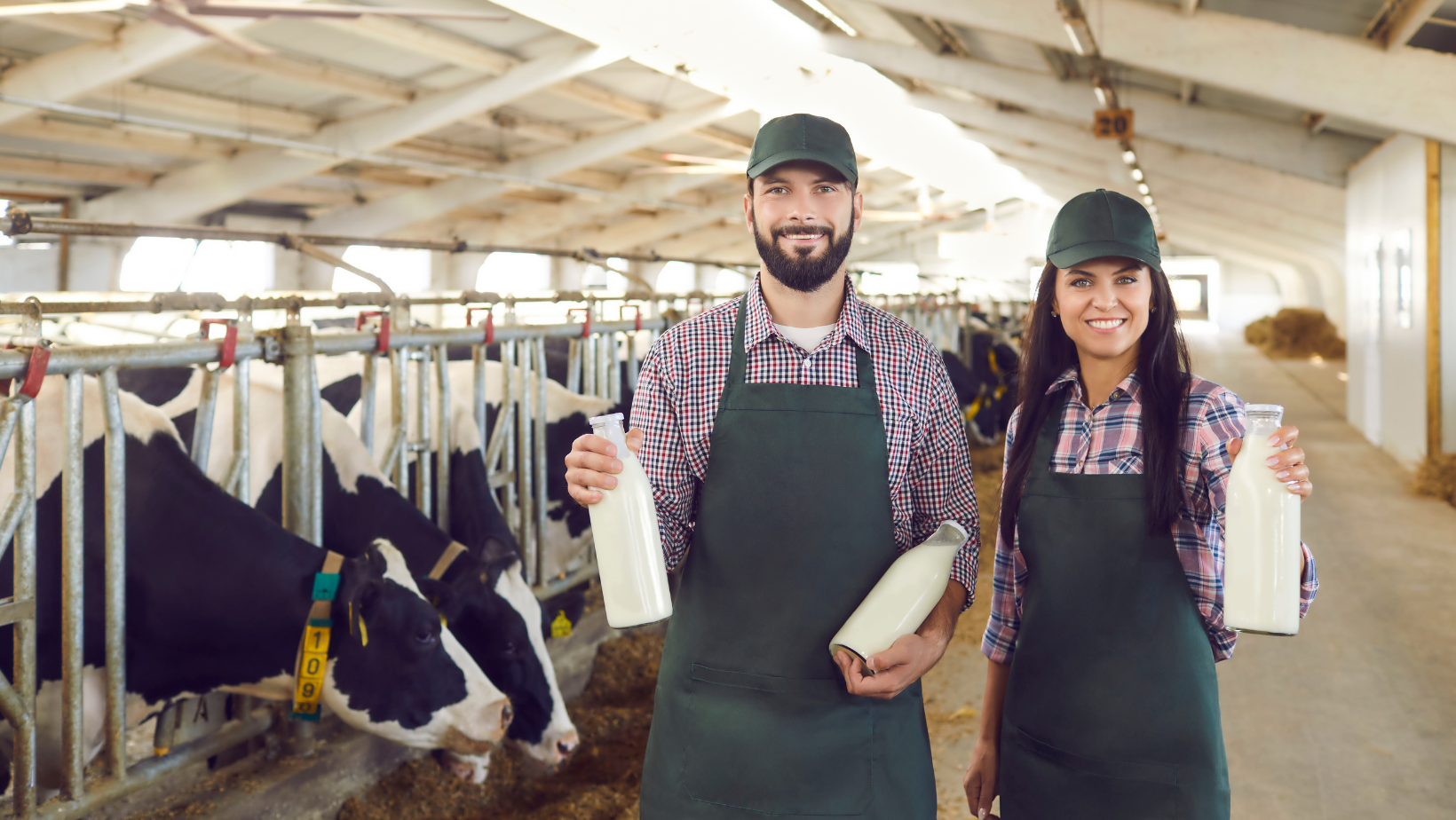Farm Stress: Friend or Foe?

With each passing year, do you find yourself having to do more with less? Long days, labour shortages,
fluctuations in commodity prices, and pressure to grow your herd are some of the sources of stress for
dairy farmers. Research found that nearly 2 in 3 farmers identify having moderate stress and 14% experience high stress1. Why does stress matter? Chronic stress decreases our immunity and leaves us vulnerable to colds and other more serious health conditions. Yet, our busy schedules do not allow room for many (if any) sick days. Furthermore, the mental well-being of dairy farmers has been found to be connected to the well-being of their herd2. Learning how to address farm stress is important for you and your cows’ health. The good news is that the negative effects of stress can be mitigated by how you perceive it and how you cope with it.
Signs of Stress
Stress affects us physically, mentally, and emotionally.
- Physical - headaches, tense muscles, fatigue, sleeping or eating too much or too little, stomach
or intestinal problems - Emotional - irritable, worried, lonely, restless, ‘feeling weighed down’
- Mental - racing thoughts, difficulties concentrating, low motivation, not enjoying life
Stress activates our sympathetic nervous system, which releases cortisol and adrenaline to prepare us
for survival (flight or fight). Experiencing the cascade of these symptoms can be harmful long-term and
many of the stress triggers in farming are not in our control—the weather, the health of our livestock,
the financial market, administrative regulations—but we can control how we think about it and respond
to it.
Stress Mindset
In the book, The Upside of Stress, health psychologist Kelly McGonigal describes how stress and
meaning are connected, insofar as, we tend to be stressed about the things that matter most, such as
our farms, our family, and our health. 3 Our ‘stress mindset’ (how we perceive it) determines the
outcome of the stress on our wellbeing. If we view stress as harmful, it will be. However, McGonigal
states that accepting stress, viewing it as a reflection of what is important, and staying focused on our
values and goals allow it to be helpful and protective. Similarly, research with farmers and producers
has found that those that find meaning and purpose in their work— working the land, taking care of the
animals, providing food for the world—have lower perceived stress.4
Three stress-reducing strategies
In addition to changing your mindset, the simple strategies below will help you acknowledge the stress
and work on releasing it. As farmers have limited time, the strategies below can be practiced in 10
minutes or less. The key is to practice regularly and try combining the strategies for maximum benefit!
- Do a body scan. When you’re used to stress, you might not notice how much you’re carrying
day-to-day. Starting at your head and moving down to your feet, notice any pain or tension. Is your breathing deep and even, or fast and shallow? - Engage in box breathing to slow your heart rate, calm your body and help distract you from
stressful thoughts. Breathe in for the count of 4, hold for 4 seconds, breathe out for the count of
4, hold for 4 seconds and repeat. - Practice mindful moments. Mindfulness allows us to focus non-judgementally on the present
moment, so we can let go of past regrets and future worries. Pay attention to those moments,
brushing your teeth, walking to the barn, working on machinery, which is often done while
thinking about other things. Notice colors, textures, smells, and sounds. Any moment can be
mindful.
Other stress protective factors include getting adequate rest (hard to do with long days!), hydrating and
eating regularly, low-impact exercise, and connecting with supportive others. When we’re the busiest
we often forget to take care of ourselves and those that we love, yet this is when we need it the most.
Milk Moovement values farmer wellbeing
Milk Moovement has partnered with the National Farmer Mental Health Alliance to offer resources and
webinars created by experienced psychotherapists with lived agriculture experience. Visit Mental Health Moovement to learn more about how to prioritize your physical, emotional, and mental
well-being!
Help when stress is harmful
Chronic and/or high levels of stress can contribute to the development of anxiety, depression, and
suicidality. If you’re feeling overwhelmed, hopeless, or stuck, help is available. Visit National Farmer
Mental Health Alliance for a list of resources available for Canadian farmers and farm families. If you’re
in crisis or suicidal, call 911, visit your local emergency department, or contact Talk Suicide Canada by
phone 1-833-456-4566 (available 24/7) or text 45645 (available 4pm to midnight ET) or dial 988 in the
United States to access the 24/7 Suicide and Crisis Lifeline.
1 Farm Management Canada. (2020). Healthy Minds, Healthy Farms: Exploring the Connection between Mental Health and Farm Business Management Final Report. Wilton Consulting Group.
2 King, M., Matson, R.D., & DeVries, T.J. (2021). Connecting farmer mental health with cow health and welfare on dairy farms using robotic milking systems. Animal Welfare, 30 (1), 25-38.
3 McGonigal, K. (2015). The Upside of Stress: Why Stress is Good for You and How to Get Good at it. Random House Canada.
4 Hagen, B.N.M., Sawatsky, A., Harper, S.L., Sullivan, T.L., & Jones-Bitton, A. (2021). What Impacts Perceived Stress among Canadian Farmers? A Mixed-Methods Analysis. International Journal of Environmental Research and Public Health, 18, 7366.

Carrie Pollard, MSW RSW is an experienced psychotherapist, wife of a grain farmer, mother of five, and co-founder of the National Farmer Mental Health Alliance.
-1.png?width=2649&height=724&name=MM%20Logo%20-%20Horizontal%20(Digital%2c%20Png)-1.png)

